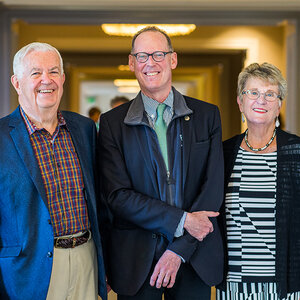Open Philanthropy awards $150 million to high-impact grantmakers

Open Philanthropy (OP), a philanthropic partnership established by Giving Pledge signatories Cari Tuna and Dustin Moskovitz, a co-founder of Facebook (now Meta), has announced five grants totaling $150 million as part of its Regranting Challenge to add funding to the grantmaking budgets of high-impact grantmakers.
The grants, which range from $5 million to $45 million, are intended to roughly double the annual grantmaking budget for the targeted programs over three years. The initiative was announced in February 2022 as part of a year-long process to learn from a wide range of grantmakers working to fund high-impact efforts that are already under way and piloting new approaches to expand already highly effective grantmaking programs with a track record of improving human health, facilitating economic development, and/or addressing climate change.
Grants were awarded to Development Innovation Ventures (DIV), a program of the United States Agency for International Development (USAID) ($45 million), in support of DIV’s investments in early-stage global health and development projects that have the potential to be highly impactful and cost-effective; the Eleanor Crook Foundation ($25 million) to fund its research and advocacy efforts to end global malnutrition; the Bill & Melinda Gates Foundation global education program ($5 million) to bolster grants to organizations developing education interventions in low- and middle-income countries; the Gates Foundation global health innovation program ($65 million), which includes a grant of $40 million to fund grantees that are advancing a new vaccine against tuberculosis through efficacy trials in adults and adolescents and $25 million to fund grantees working to diversify cholera vaccine manufacturing and increase vaccine supply to better meet global demand; and Tara Climate Foundation ($10 million) to help create nonprofits and expand the climate movement across Asia (excluding China and India).
Despite warning in July 2022 that expected funding would likely decrease in the coming year, because of a “reductions in our asset base”—presumably stock in Meta, which has declined in value over the past year—OP maintained its commitment to full funding. “We were surprised and impressed by the strength of the applications we received,” OP noted. “When we launched the challenge, we weren’t sure we’d be able to allocate all of the funding while staying above our [cost-effectiveness] bar….[W]e believe all awardees were able to clear this new higher bar.”
(Photo credit: Getty Images/ProstockStudio)





